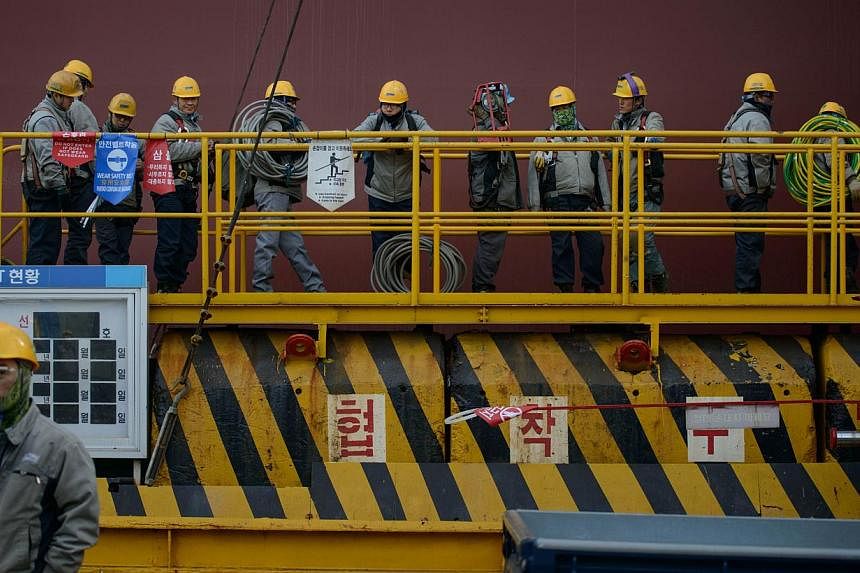SEOUL (REUTERS) - South Korea has finalised details on a plan to tax "excessive" cash reserves held by companies, a move aimed at getting them to devote more of their profits on dividends, wages and investments.
The tax will apply to business results for 2015 through 2017, and up to 700 mostly large Korean companies were seen as being affected by the plan, according to a simulation based on 2013 financial results, a finance ministry official said.
The Parliament approved the plan on Dec 2, along with the government's 2015 Budget Bill, and the finance ministry on Thursday unveiled guidelines on how it would calculate if a company is judged to have excessive cash reserves.
According to the guidelines, a tax could be levied against a company spending less than 80 per cent of its final profit on dividend payments, increased wages or investments.
"Eligible companies reached about 700 when we calculated from 2013 business results, but the actual number could fall to as few as zero," Mr Moon Chang Yong, deputy finance minister for tax and customs, told an embargoed briefing on Tuesday.
He declined to give an estimated amount of revenue the plan could generate, saying the policy was not aimed at collecting tax but encouraging companies to spend as much of their profits as possible on lifting household income and domestic demand.
In addition to the plan, the ministry is also introducing tax advantages, also for three years, for companies increasing wages or dividend payments far more than the national average or their recent levels.
Finance Minister Choi Kyung Hwan has warned that South Korea's economy could fall into a protracted slump - similar to one that Japan was in for about two decades - as global demand remains weak and household income is increasing slowly.

